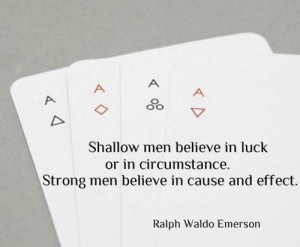What are you passionate about? Whatever it is, do it, talk about it, grow it, share it, seek out collaboration or guidance or mentorship from one or more people who are further along than you or are already an expert.
If or when a passion fades, loses relevance, or is outgrown, consider moving on to the next one. Maybe you dabble in a hobby or interest on the side for years, or maybe you set yourself up to make a very abrupt change into a new field or interest. Whatever you choose; it’s your life and your decision… own it!
———————–
“I wish I’d had the courage to express my feelings,” is one of the top five regrets of the dying — a sentiment that hints at the fact that people wish they’d spent less time talking about the weather and more time delving into what it is that makes their heart swell.
Nothing wrong with shootin’ the you-know-what every now and then, but sitting down to talk about what makes you tick is a prime practice for feeling good about life. A study published in Psychological Science found that those who take part in more substantive conversation and less trivial chit chat experienced more feelings of satisfaction.

